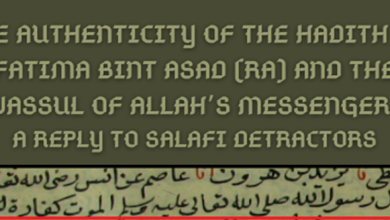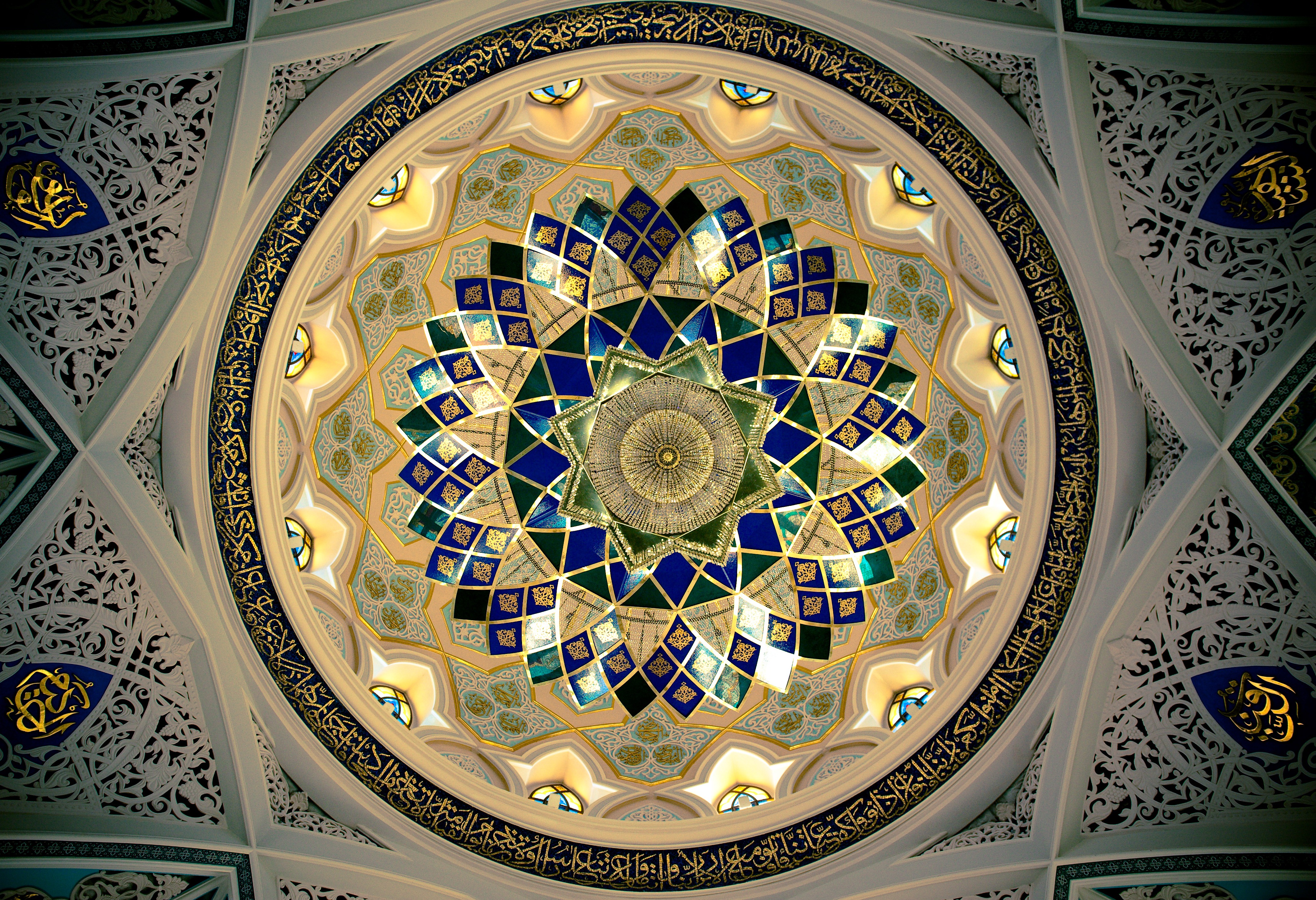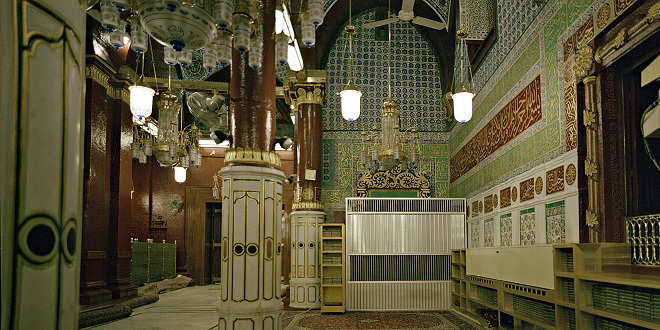“Salafi” scholars who authenticated al-Bayhaqi’s narration for 20 rak’ats Taraweeh
Assalamu alaikum
With regard to the famous narrations for the validity of 20 Rak’ats of Taraweeh in Umar ibn al-Khattab’s (ra) time as recorded via one route in al-Sunan al-Kubra of Imam al-Bayhaqi and via another route in his Ma’rifatus Sunan, two contemporary UK based “Salafi” proponents known as Abu Khuzaima Ansari and Abu Hibban Kamran Malik, mentioned as part of their refutation of the evidences for 20 Rak’ats in their falsely entitled work known as “al-Qaul ul-Saheeh” the following:
Our Claim
The Imaam the Muhaddith, al-Allaamah Abu Muhammad Badee ud deen Sindhee said, “The Ahlul-Hadeeth claim it is not authentically established from any companion that they prayed 20 raka’hs of taraaweeh and the narrations that are mentioned in this regard are all principally weak.” (Tanqeed as-Sadeed Bir-Risaalah Ijtihaad Wat-Taqleed (pg.264).
The Text
Saa’ib bin Yazeed said the people would pray 20 raka’hs during the time of Umar and in the era of Uthmaan they would stand for such long periods that the people would become tired and would lean on their sticks.” (Sunan al- Kubraa (2/496) of Imaam Baihaqee.)The ChainInformed me Abu Abdullaah al-Hussain ibn Muhammad ibn al-Hussain Finjuwayah ad-Dinawaree from Ahmad ibn Muhammad ibn Ishaaq as-Sunnee from Abdullaah ibn Muhammad ibn Abdul Azeez al-Baghawee from Ali ibn al- Ja’ad from Ibn Abee Dhi’b – Yazeed ibn Khaseefah from Saa’ib ibn Yazeed,
Reply:
The text they are referring to is found in Imam al-Bayhaqi’s al-Sunan al-Kubra (and also in his Fada’il al-Awqat) as follows:
رواه في “السنن” ص 496 ج 2، قال: أخبرنا أبو عبد الله الحسين بن محمد بن الحسين بن فنجويه الدينوري بالدامغان حدثنا أحمد بن محمد بن إسحاق السني أنبأ عبد الله بن محمد بن عبد العزيز البغوي حدثنا علي بن الجعد أنبأ ابن أبي ذئب عن يزيد بن خصيفة عن السائب بن يزيد، قال: كانوا يقومون على عهد عمر بن الخطاب رضي الله عنه في شهر رمضان بعشرين ركعة، قال: وكانوا يقرءُون بالئين، وكانوا يتوكئون على عصيهم في عهد عثمان بن عفان رضي الله عنه من شدة القيام، اه
In the above translation of the text, the two compilers left out the mention of the town known as Damghan (northern Iran) as well as not translating precisely the modes of transmission such as Haddathana correctly!
Al-Bayhaqi’s narration was declared to have a Sahih chain of transmission by the following classical Ulama of Hadith and fiqh who lived before the fall of the last Islamic Caliphate, in contradistinction to the 14th century revisionist writers on Hadith like al-Mubarakpuri and al-Albani who attempted to weaken it with no precedence.
1) Sharafud-Din al-Nawawi (d. 676 AH)
2) Fakhrud-Din al Zayla’i (d. 743 AH)
3) Taqiud-Din al Subki (d. 756 AH)
4) Ibn al Mulaqqin (d. 804 AH)
5) Waliud-Din al-Iraqi (d. 826 AH)
6) Badrud-Din al-Ayni (d. 855 AH)
7) Jalalud-Din al-Suyuti (d. 911 AH)
8) Zakariyya al-Ansari (d. 926 AH)
9) Ibrahim al-Halabi (d. 956 AH)
10) Al-Khatib al-Shirbini (d. 977 AH)
11) Ali al-Qari (d. 1014 AH)
12) Murtada al-Zabidi (d. 1205 AH)
13) Sulayman al-Bujayrmi (d. 1221 AH)
14) Abu Bakr al Dimyati (d. 1310 AH)
15) Muhammad Ali al-Nimawi (d. 1322 AH)
“Salafi” scholars who authenticated or accepted al-Bayhaqi’s narration:
1) Abdar Rahman al-Muallimi al-Yamani [1] (d. 1386 AH)
It is sufficient to say that the likes of Badi al-Sindi and al-Albani have no early scholar to support their weakening of the narration from al-Bayhaqi’s Sunan al-Kubra for 20 rak’ats in the time of Umar (ra). On the contrary, one of their fellow sect members, who some from their likes epithetised with the title of “al-Dhahabi al-Asr” (The Dhahabi of the Age), known as Abdar Rahman al-Muallimi has done some justice by declaring the sanad of al-Bayhaqi’s al-Sunan al-Kubra to be Sahih in his Kitab Qiyam Ramadan.[2]
2) The late “Salafi” opponent to al-Albani, known as Isma’il al-Ansari (d. 1996/1417 AH) wrote a number of refutations on the former, and one such work is connected to the rak’ats of Taraweeh. In his Tashih Hadith Salatil Taraweeh Ishrin rak’a wal radd ala al-Albani fi Tad’ifihi[3] he mentioned the narration for 20 rak’ats in the time of Umar (ra) as mentioned in al-Sunan al-Kubra of al-Bayhaqi, and noted that it was declared to be Sahih by Imams: al-Nawawi in his al-Khulasa and al-Majmu with agreement by al-Zayla’i (author of Nasb al-Ra’ya), Taqiud-Din al-Subki in his Sharh al-Minhaj, Ibn al-Iraqi in his Tarhil Tathreeb, al-Ayni in his Umdatul Qari, al-Suyuti in his al-Masabih, Ali al-Qari in his Sharh on Muwatta and al-Nimawi in his Athar al-Sunan.
3) The late Damascan based advocate of the “Salafi’s” known as Abdal Qadir al-Arna’ut (d. 2004/1425 AH) has also declared the same sanad from al-Bayhaqi’s Sunan al-Kubra to be Sahih in his editing of the Jami al-Usul fi ahadith al-Rasul [4] of Imam Ibn al Athir al-Jazari (d. 606 AH).
4) The Egyptian “Salafi” writer, Mustafa al-Adawi has already been quoted as authenticating not only the narration mentioning 20 rak’ats in Umar’s (ra) time as recorded in the Musnad of Ali ibn Ja’d in his Bahath fi adad rak’at qiyam al-layl, but also some of the reports from the Tabi’in also.
Notes:
[1] Al-Muallimi was one of the chief editors of classical texts at the famous Hanafi publishing and research center known as Da’iratul Ma’arif in Hyderabad, India. He is also a reference to his admirers for his reply to his contemporary, Shaykh Muhammad Zahid al-Kawthari (d. 1371 AH)
[2] See p. 57, Maktaba al-Makkiyya, 1st edn, Makka, 1997
[3] See p. 7, Maktaba al-Imam al-Shafi’i, Riyadh, 2nd edn, 1988
[4] 6/123-124
More can be read – HERE
—————————————–
Wassalam
Abul Hasan





